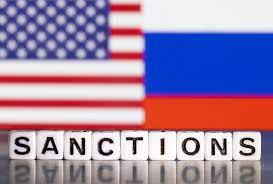DOJ, Commerce and Treasury Issue JCN on Foreign Person Liability for Sanctions and Export Controls Violations

As DOJ, OFAC and BIS ramp up sanctions and export controls enforcement, they have continued to provide important compliance guidance. You have to give the enforcement agencies credit — on the one hand, they regularly warn of the coming enforcement storm and aggressive push against companies and individuals; and on the other hand, they provide significant compliance guidance. Over the last five years, DOJ, OFAC and BIS have steadily increased the amount and quality of sanctions and export controls guidance. To this end, the three agencies have issued several Joint Compliance Notices or JCNs.
In the latest JCN, DOJ, BIS and OFAC provided important reminders and guidance on the potential liability of foreign persons for violations of sanctions and export controls. DOJ, BIS and OFAC face challenges in deterring sophisticated evasion tactics, recognizing that the line sometimes between evasion and compliance can be thin — it often boils down to delicate examinations of “intent” evidence.
While some in the business world may simply turn to foreign actors (non-U.S. Persons) as a means to evade or avoid liability, these actors face increasing scrutiny and are acting with a false sense of security given the broad exterritoriality of U.S. laws and in particular sanctions and export controls.
In a stark message, the JCN notes that “companies outside of the United States should be aware of how their activities may implicate U.S. sanctions and export control laws,” and the “enforcement mechanisms that are available for the U.S. government to hold non-U.S. persons accountable for violations of [sanctions and export controls] laws, including criminal prosecution.”
OFAC Sanctions Laws

The JCN notes that “U.S. persons” must comply with OFAC laws and regulations, including all U.S. citizens and permanent resident aliens wherever they are located, all [persons within the United Statees and all U.S.-incorporated entities and their foreign branches. In certain sanctions programs (e.g. Russia, Cuba, Iran and North Korea) foreign entities owned or controlled by U.S. persons must comply with applicable restrictions. See e.g., 31 C.F.R. §560.215 (prohibiting foreign persons owned or controlled by a U.S. person from engaging in any transaction with the Government of Iran or subject to Iranian jurisdiction); 31 C.F.R. §515.329 (extending Cuba sanctions prohibitions to any corporation, partnership, association, or other organization, wherever organized or doing business, that is owned or controlled by U.S. persons); 31 C.F.R. §510.214 (extending certain North Korea sanctions to foreign persons owned or controlled by a U.S. financial institution).
Non-U.S. persons are subject to certain OFAC prohibitions. Most significantly, non-U.S. persons are prohibited from causing, facilitating or conspiring to cause U.S. persons to violate U.S. sanctions wittingly or unwittingly, as well as engaging in conduct that evades U.S. sanctions. It is important to remember that U.S. sanctions enforcement may result in civil or criminal penalties and that OFAC may impose civil penalties for sanctions violations based on strict liability, meaning that liability extends to situations where a person did not know or have reason to know that it was violation sanctions laws or regulations.
As examples of prosecutions of foreign entities, the JCN cited the Toll Holdings case in 2022, Alfa Laval Middle East in 2021, and the Swedbank Latvia case in 2023. In general, the JCN noted that OFAC has focused on situations where a non-U.S. person: (1) obscures or omits reference to the involvement of a sanctioned party or jurisdiction to a financial transaction; (2) misleads a U.S. person into exporting goods ultimately destined for a sanctioned jurisdiction; or (3) routes a prohibited transaction through the United States of U.S. financial system.
Bureau of Industry & Security Export Controls
With respect to export controls, the JCN underscores the fact that U.S. export laws extend to items subject to the Export Administration Regulations (“EAR”) anywhere in the world and to foreign persons who deal with them. The law tracks the movement of the goods themselves. In addition to initial exports, the EAR applies to re-exports and in-country transfers within a foreign country.
The JCN cites the fact export control laws apply to goods that incorporate a certain percentage of controlled U.S. content above certain de minimis thresholds (typically between 10 and 25 percent, depending on the nature of the national security threat), and to exports from abroad, reexports and in-country transfers of certain foreign-made items produced using U.S. software, technology or production equipment (referred to as a foreign direct product rule).

The JCN notes several scenarios in which U.S. export control laws would apply to a U.S. person and a foreign person, including: (1) shipment of a good from the United States to a distributor in the United Arab Emirates, which in turn ships the goods to Iran; (2) changing an end user or a specific end use of an item within a foreign country; (3) shipment of a foreign-located good subject to the EAR to a foreign destination; and (4) manufacture of items that contain U.S. origin-components or software depending on the percentage of U.S. origin content (10 percent for North Korea, Syria, Cuba and Iran, and 25 percent in other areas). In some cases, BIS has extended to foreign direct product rule to apply to: foreign produced products that are the direct product of certain U.S. -origin software or technology or produced by a specified plant; certain advanced semiconductors manufactured by Chinese companies; and defense-related entities in Russia and Belarus.
As examples of its aggressive enforcement approach, BIS cited in the JCN its prosecution of Seagate, Aratos Group, a network of defense-related companies in the Netherlands and Greece, and various foreign airlines.
DOJ Criminal Enforcement
DOJ is authorized to prosecute willful violations of sanctions and export control laws. Criminal liability for willful violations extends to those individuals or entities that cause or induce a violation. Willful violations are punishable by imprisonment of up to 20 years and a $1 million fine.

DOJ often prosecutes foreign-based actors for unlawful transfer of U.S.-technology to prohibited destinations. Some recent examples include: (1) in October 2022, DOJ prosecuted three Latvian nationals, a Ukrainian national, a Latvian company and an Estonian company for violations of U.S. export laws for trying to smuggle to Russia a dual-use, high-precision computer grinding machine; (2) in December 2023, DOJ charged an Iran-based person and individuals in China and Hong Long for the illegal purchase and export from the U.S. to Iran of dual-use electronics commonly used in Unmanned Aerial Vehicle (“UAV”) production; and (3) in November 2023, Binance Holdings Company Ltd., the world’s largest cryptocurrency exchange, entered a guilty plea for various criminal violations including violations of U.S. sanctions laws. Binance agreed to a $4.3 billion penalty. As part of the guilty plea, Binance admitted to knowing that it had a significant number of users from sanctioned jurisdictions, such as Iran, as well as a significant number of U.S. users.















